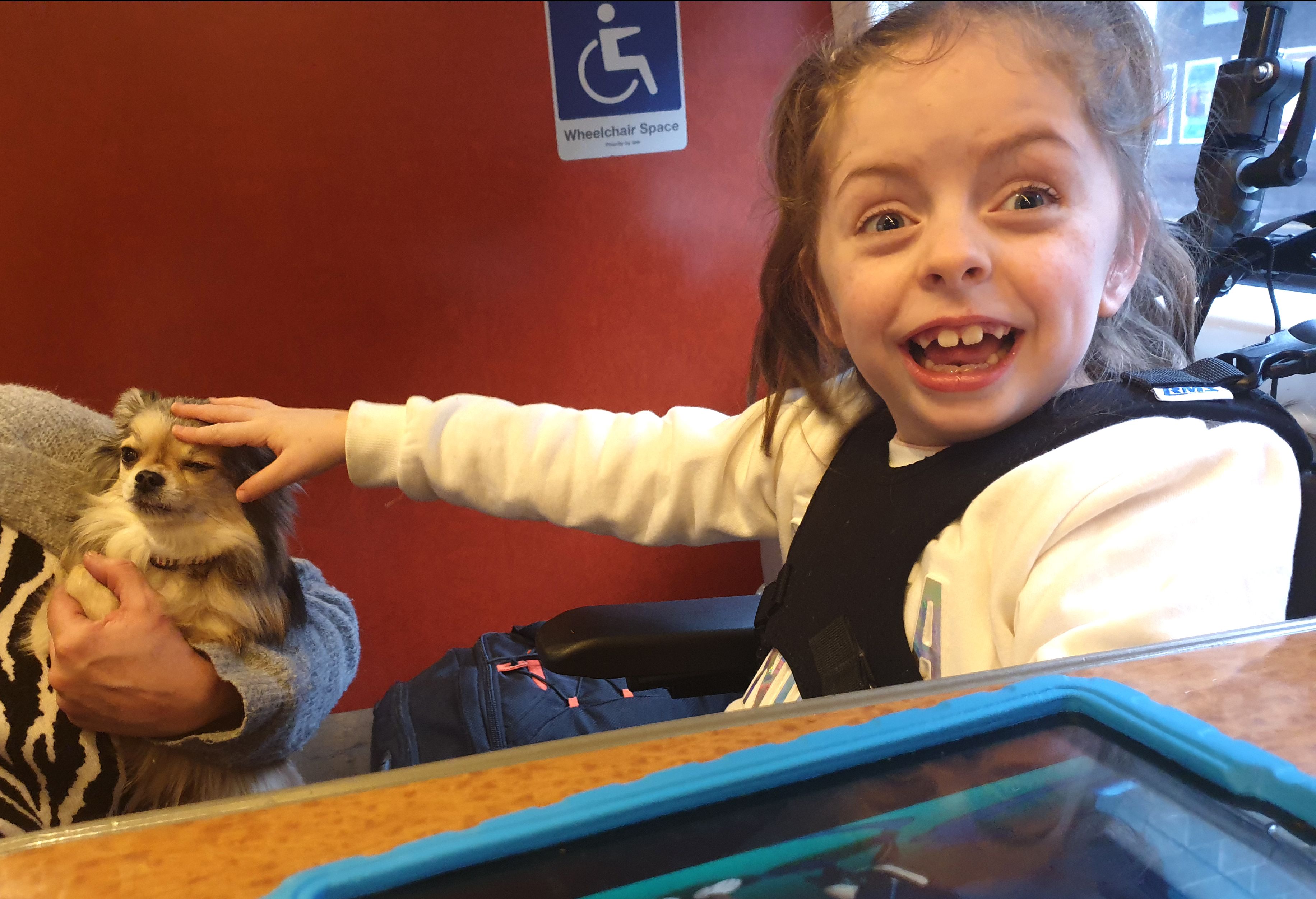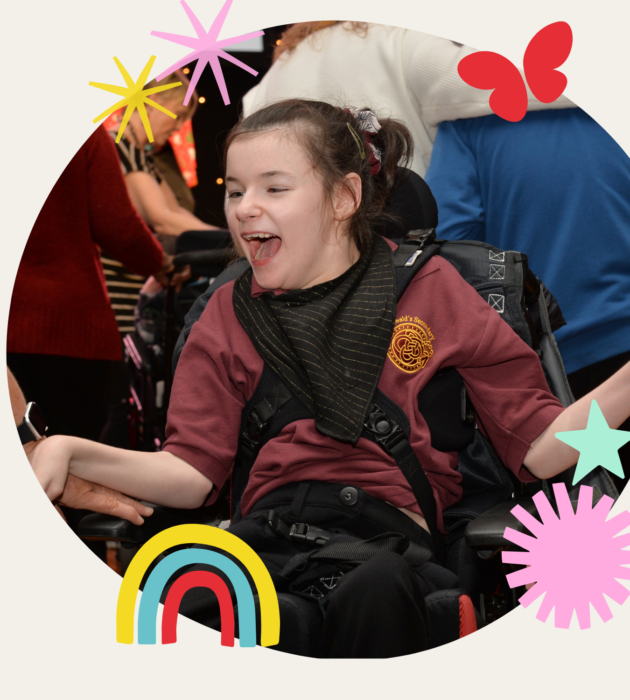Mum Rebecca tells us about Hannah’s life with epilepsy

Mum Rebecca shared Hannah’s story with us:
“Hannah has many different seizure types. Once she went 17 months without a single seizure, however, her condition is unpredictable and in the blink of an eye, she can go from playing with her sisters to being in resuscitation, or from being at school to being on life support.
For Hannah, vomiting is a sign that an epileptic seizure is imminent. This at least gives us a few seconds’ notice. However, most of the time the seizures come without warning. We have learned Hannah’s triggers, though, and we try to manage them. These are tiredness, illness, and over-excitement. Most people think it’s always flashing lights that trigger seizures, but that’s the case only for a small percentage of people with epilepsy. Anything can be a trigger, including smells, sounds, and certain foods.
In our everyday lives, we make sure we carry two types of rescue medication and oxygen everywhere we go, and we keep a supply of them with her at school. She also takes two different types of anti-epilepsy drugs daily. We use under-mattress monitors and video monitors to watch over her at night. We are currently researching ways to fund a SATs monitor, which measures oxygen saturation levels in the blood, in order to keep her safer.
Epilepsy doesn’t care about events or occasions. It’s not Hannah’s fault that her seizures come when they come, and we cannot avoid them. We’ve spent birthdays, anniversaries and Christmases in hospital. We’ve missed work and school as well as parties and events. None of this is Hannah’s fault – it’s just part, and parcel of raising a child with an unpredictable condition. We are lucky that the majority of our family and friends also have children with additional needs so they understand and are very supportive.
If I could do just one thing, I would give all families of children with epilepsy whatever resources or equipment they needed to ensure their safety. This could be monitors, cameras or medical equipment – whatever it takes to help reduce the incidence of Sudden Unexpected Death in Epilepsy Patients (SUDEP). I would also provide family members, and the epilepsy patients themselves, with counseling following traumatic events so that their mental health was nurtured. It would be a good idea to provide full seizure training for family members too.
Epilepsy is most definitely a hidden disability. Hannah has other visible disabilities but without witnessing a seizure, no-one would know that she’s epileptic. Many people with epilepsy get accused of being drunk or disorderly due to the way pre and postictal symptoms and seizures manifest themselves. People need to think and be educated.”
Epilepsy is a neurological disorder marked by sudden recurrent episodes of sensory disturbance, loss of consciousness, or convulsions, associated with abnormal electrical activity in the brain.
Transform a child’s life
Donate now